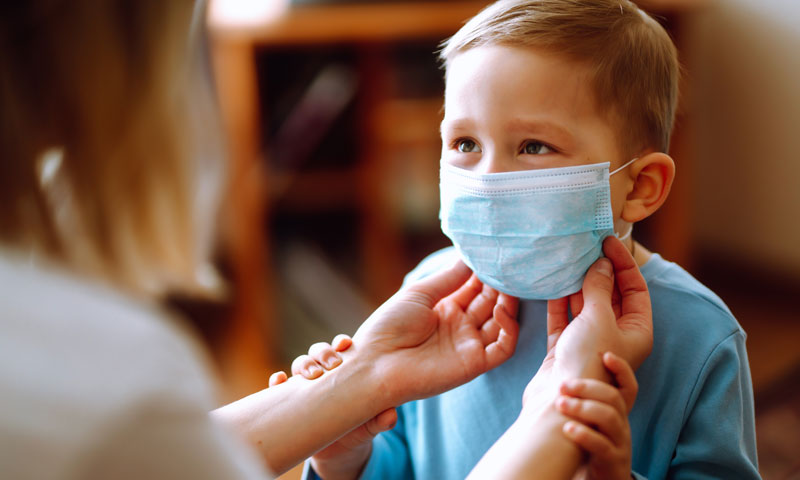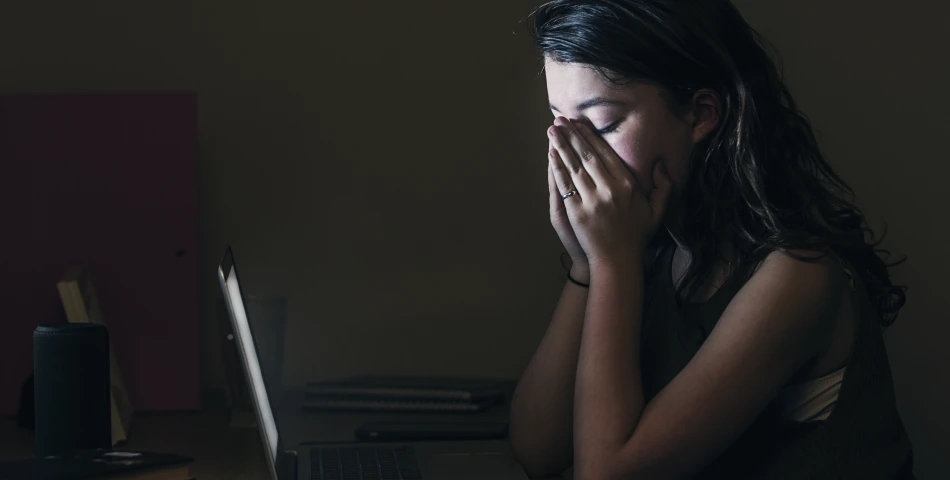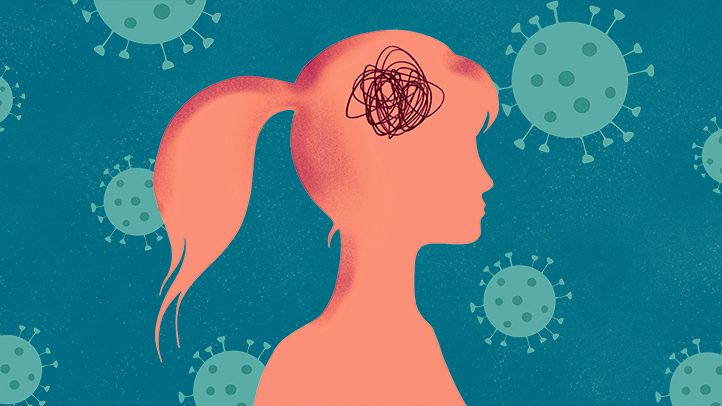Image courtesy of Vox.
As days turn to weeks and weeks turn to months, social distancing has many experiencing a huge sense of isolation. On top of this isolation, everyone is uncertain as to when the United States will reopen, when the pandemic will end, and how the country will recuperate from this virus and economic crisis. Uncertainty goes hand in hand with fear. Many Americans are experiencing fear. Fear of getting infected, fear of job loss, and fear from the inconsistent messages given by high authority figures.
The real question is, how is the Coronavirus affecting our mental health?
Many people are concerned that the changes brought about in society will cause a spike in mental health disorders that will be persistent long after the pandemic is over. The psychological impact as well as the impact on physical health is something that should be taken seriously.
This article will discuss how COVID-19 affects the mental health of:
- Kids
- Teens
- College Students
- Adults
- Individuals with underlying mental health disorders
The Coronavirus and Children’s Mental Health
The Pandemic’s Negative Impact on a Child’s Emotional and Physical State
It is no secret that there are uncertainties surrounding the foreseeable future. Due to these uncertainties, children are at a greater risk of developing mental health disorders. A potential of prolonged school closure and social isolation could cause psychosocial stress as well as have harmful effects on physical and emotional states.
As a country, we have struggled to identify and correctly diagnose mental health disorders in adults let alone children. In the past decade, suicide, depression, and suicide attempts have seen a rise for reasons that are still unknown. In the wake of the Coronavirus Pandemic, it is impossible to predict the long term effects on children. Some children may come out the other side with unprecedented resilience while others may experience long-term trauma that can affect their development.
School provides a safe haven for many kids as well as a source of nutrition for many others. Due to school closure, these kids are not receiving the necessary essentials that are important for a child’s physical health. School also provides counseling services to children who have problems that need to be discussed or current mental health disorders that are being managed. Again, due to school closure, a spike in mental health disorders or a worsening of current mental states will become increasingly noticeable.
If you notice your child starting to retract from you or becoming distant, don’t hesitate to reach out to GRW Health. GRW Health can bring psychiatric care to a variety of locations in the West

Virginia and Pittsburgh areas and will work with your child to regain a balance in their life.
Mental Health of College and High School Students Impacted
Doctors See a Rise in Depression Amongst High School Students
As the Coronavirus took over the world, many students saw their school years cut short. School closure had a huge impact on high school seniors. These seniors saw their lives cut short and watched as many life events were either cancelled or postponed. These kids lost prom, an in-person graduation, important sport seasons, and spending time with friends.
Experts believe that in today’s world, parents are raising their kids to have unrealistic expectations. These expectations have not prepared high school students with the kind of coping skills necessary to survive chaotic times. The hectic lifestyles of students as well as environmental toxins or diseases, and other factors that affect stress have caused a rise in depression in high school students.
High School Students Aren’t the Only Students Affected
Many college students who were forced to come back home indefinitely feel as though they are back in high school. These students have journeyed back to their childhood bedrooms as well as chores, revived sibling rivalries, and curfews. College students have had to adapt to online classes and social isolation just like high students. High school students were not the only ones who lost an important school year.
For a lot of college students they lost:
- Graduation
- Study abroad trips
- Athletic events
- internships/jobs
College seniors will also be entering into a job market that has been devastated by the virus. The unemployment rate is at 27 percent, which is higher than the post-war recession. Overall, many have been focusing solely on high school students but what about college students? The additional stress placed on college students has left many struggling to manage their mental health. A quote from Thomas Insel, former director of the National Institute of Mental Health, reads:
- “The rates of depression, anxiety, PTSD and eating disorders in this population have been very high, and that was prior to January 2020. When you add in this new set of stressors, I think there’s every reason to be concerned, but we need the data to know what that really looks like, and we don’t yet have it.”

The Family Man and Coronavirus
How Coronavirus is Causing a Historic Rise in Mental Disorders
In a recent KFF poll, nearly half (45%) of adults in the United States reported that their mental health has been negatively impacted due to worry and stress over the virus. It is likely that the mental health burden will increase as more measures are taken to try and slow the spread of the virus. Stay at home orders and social distancing is leading to greater financial stress and greater isolation.
Although these orders are necessary and life saving, social isolation is linked to poor mental health outcomes. Feelings of anxiety are increasing as people are becoming fearful of contracting the virus or having someone they love contract the virus. In addition, pandemics and epidemics have been shown to induce a new level of anxiety in the general population and can lead to new mental health disorders appearing in adults.
Living Through a Pandemic with Current Mental Health Issues
Mental Health Conditions Worsen Due to Coronavirus

The abrupt change of society due to the pandemic will have a significant impact on individuals with preexisting mental health disorders. For people suffering from OCD, the fear of getting sick and the worrying over germs will heighten their obsessive compulsions. Obsessions of germs and having the compulsion to clean will cause a significant increase in anxiety in people with OCD. Depression can also worsen during this pandemic. The stress and worry over the Coronavirus can lead to a depressive episode. Given that a common treatment for major depressive disorder is behavioral activation such as exercising, spending time in nature or spending time with friends. The fact that people are more isolated and less able to engage in these types of activities could lead to and worsen already prevalent depression.
